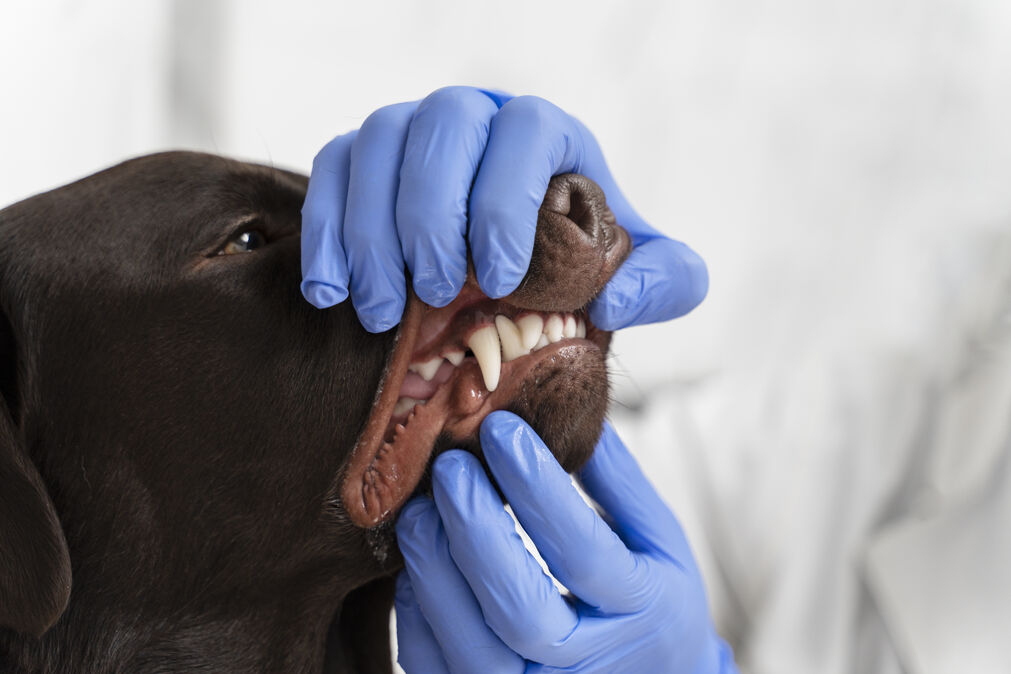Pet owners often overlook the importance of dental health. Just as humans require regular check-ups, pets also need proper dental care to maintain overall well-being. Identifying signs that indicate a need for a dental examination ensures that your pet remains healthy and happy. Today, we highlight key indicators that suggest it’s time for a professional dental check-up for your furry friend.
Bad Breath
While it’s normal for pets to have a certain breath odor, a particularly foul smell can be a sign of dental issues. Persistent bad breath may indicate bacterial growth in the mouth, often due to plaque buildup or gum disease. If brushing your pet’s teeth does not improve the odor, it’s advisable to seek a professional evaluation. Regular dental cleanings can prevent more serious health problems down the line.
Difficulty Eating
Changes in eating habits, such as reluctance to chew food or sudden interest in softer foods, can be indicative of dental discomfort. Pets experiencing pain in their mouths might drop food while eating or chew on one side. Observing these behaviors is crucial, as they can point to issues like tooth decay, broken teeth, or gum infections. Immediate attention from a vet can address these problems before they worsen.
Pawing at the Mouth
Pets sometimes paw at their mouths when experiencing oral discomfort. This behavior can result from various dental problems, including abscesses, loose teeth, or ulcers. Consistent pawing at the mouth should not be ignored, as it often signifies that your pet is in pain. A thorough dental check-up can diagnose and treat the underlying issue, providing relief for your pet.
Excessive Drooling
An increase in drooling can be a sign that something is wrong with your pet’s mouth. While some breeds naturally drool more than others, a sudden onset of excessive drooling can indicate dental disease. Conditions such as gingivitis, oral tumors, or foreign objects stuck in the mouth can cause this symptom. Monitoring your pet’s drooling habits and consulting a veterinarian if you notice changes can help maintain their dental health.
Discolored Teeth
Healthy teeth are typically white or light yellow. Darkened or stained teeth can signal dental problems such as tartar buildup or cavities. Regularly inspecting your pet’s teeth for discoloration aids in early detection of dental issues. Professional cleanings can remove tartar and prevent further decay, ensuring your pet’s teeth remain strong and healthy.
Swollen or Bleeding Gums
Swollen or bleeding gums are clear indicators of periodontal disease, which is common in pets but preventable with proper care. Gums that are red, puffy, or bleed easily during brushing should be examined by a vet. Early-stage gum disease can often be reversed with professional cleaning and improved at-home dental care. Ignoring these symptoms can lead to more severe health problems, including tooth loss and infections.
Loose or Missing Teeth
Adult pets should not have loose or missing teeth, as this points to serious dental issues. Loose teeth can result from trauma, decay, or advanced periodontal disease. Missing teeth might indicate that an infection or decay has caused the tooth to fall out. A veterinary dental check-up can identify the cause and provide appropriate treatment, preventing further tooth loss and ensuring your pet’s comfort.
Behavioral Changes
Behavioral changes, such as increased irritability or withdrawal, can be a subtle sign of dental pain. Pets may become less playful, hide more often, or show aggression when their mouths are touched. These changes in behavior necessitate a closer look at their dental health. Addressing dental pain can significantly improve your pet’s mood and overall quality of life.
Trust Expert Services for Your Pet’s Health
Observing these signs can help ensure your pet receives timely dental care, preventing more serious health issues. Establishing a routine for dental check-ups is crucial. For instance, veterinary clinics like Baywood Animal Hospital offer solutions that emphasize the importance of professional dental care. It’s essential to rely on expert veterinary services to maintain your pet’s dental health and overall well-being.
Take Care Of Your Pet’s Dental Health
Maintaining your pet’s dental health is essential for their overall well-being. By being vigilant and recognizing the signs that indicate the need for a dental check-up, you can help prevent serious health issues and ensure a happier, healthier life for your furry companion. Regular veterinary visits not only address existing dental problems but also promote proactive care practices. Remember, a little attention to your pet’s dental hygiene can go a long way in enhancing their quality of life. Don’t hesitate to consult your veterinarian if you notice any concerning signs—your pet deserves the best care possible!

